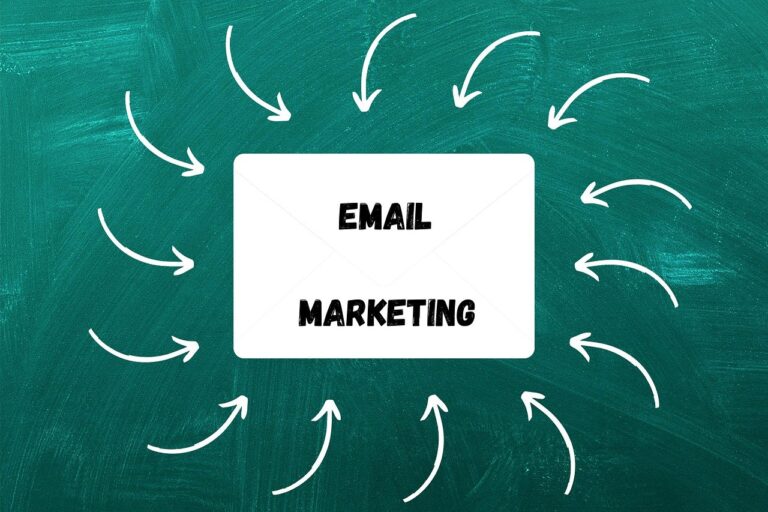Do you feel like your emails aren't getting the response you were hoping for? It's frustrating, but the solution may be easier than you think. It's all about adjusting her CTA in the email.
This guide will help you navigate the realm of email CTAs. We dive into why CTAs are important to your success, explore different types of CTAs, and provide practical tips for creating compelling CTAs that compel your audience to take action. Whether you're aiming to increase click-through rates, increase conversions, or increase engagement, mastering the art of effective CTAs is key to achieving your email marketing goals.
Let's thoroughly optimize your email strategy!
Why email calls to action are important
Think of CTAs as your GPS for successful email marketing. A CTA is a direct invitation to your subscribers to take some action, such as purchasing, downloading, signing up, or checking out your website.
Without a CTA, your emails can get lost in a crowded inbox and easily forgotten, even if you use a custom email marketing template. These small, powerful tools cut through all the noise and give your audience a clear path to follow.
They're like the secret sauce that takes your emails from forgettable to action-packed. Direct your audience, build urgency, ensure FOMO kicks in, and turn your email into an advocate for getting things done.
Types of CTAs
To create effective email campaigns, it's important to understand the types of CTAs available. Here are some types to consider:
- Button CTA: A clear, visually appealing button with concise text that prompts the recipient to click to proceed.
- Text-based CTA: Simple hyperlink text that directs readers to a specific landing page or website.
- Image-based CTAs: Eye-catching images with embedded links that grab attention and encourage clicks.
- Social Media CTA: Incorporate social media icons or buttons to drive followership and engagement on platforms like Facebook and X (formerly Twitter).
- Personalized CTAs: Customize CTAs based on recipient data like name and past purchases for a personalized touch.
Diversifying these CTAs and placing them strategically in your emails will optimize engagement and increase conversion rates.
Creating effective CTAs: The art of persuasion
Creating compelling CTAs is the cornerstone of successful email marketing. Here are five tips for creating powerful call-to-action emails that drive conversions.
Be clear and concise
Use strong verbs and keep your message concise. Express the desired action clearly and make it easy for your audience to understand. Avoid unnecessary redundancy that can obscure the main purpose. Keep your CTAs simple and direct, leaving no room for ambiguity.
example:
Previous: “Buy now…”
After: “See our latest collection”
The common “Buy now…” has been upgraded to “See our latest collection” to provide more context and help users discover the brand's latest products. This CTA is suitable for retail businesses as it encourages potential customers to browse and use the brand's products. The emphasis on the word “explore” suggests a more interactive and immersive shopping experience.
increase urgency
Use powerful language to create a sense of urgency and encourage immediate action. Use phrases like “limited time offer” to convey the concept that the opportunity isn't available indefinitely. Using language like this forces individuals to take quick action rather than delaying their reaction.
example:
Previous: “More details…”
After: “Reserve your spot now”
Turn passive calls to action into active instructions that create a sense of urgency. Prompting recipients to “Reserve your spot now” conveys the importance of acting quickly to reserve a spot and lets recipients know if availability is limited or time-sensitive. It implies that there is a gender.
action-oriented language
Use bright, eye-catching colors and a variety of unique fonts to make your CTAs stand out. This strategic approach effectively captures people's attention and guides them toward the desired action, whether it's clicking a button or filling out a form.
example:
Previous: “Buy Now”
After: “Find your perfect style”
“Buy it now” is commonly used, but it may not effectively communicate the unique perks and benefits of the available products and services. It lacks personality and creates no sense of urgency. By changing “Buy Now” to “Find your perfect style,” your CTA becomes more action-oriented and personalized. Appeal to the viewer's desire to be discovered.
Value provided
Ensure individuals understand the benefits of taking action. Let us know about the great benefits you receive, including access to exciting content and exclusive discounts you won't want to miss. This will help them understand the value of what you are offering and will motivate them to take action.
example:
Previous: “Let’s know more…”
After: “Please check the course list”
Instead of a vague call to action, the revised CTA provides clear value to prospects by encouraging them to explore a specific resource, a list of courses offered. This draws attention to the tangible benefits of engaging with your email content, increasing the likelihood of click-throughs and conversions.
Use personalization
Create a special impression by changing your CTAs for each person. This means making adjustments based on your preferences and what you've done before. When they feel like you understand them personally, they're more likely to comply with your request because it seems like it's just for them.
example:
Previous: “Order now…”
After: “Enjoy gourmet food”
“Order now…” is transactional and lacks personality. “Indulge in the joy of cooking'' appeals to the senses of potential customers, creates a sense of anticipation, and invites them to savor an experience of delicious food and enticing flavors.
Experiment and test to identify the most effective email CTA strategies to capture your audience's attention.
If you liked this article, sign up for SmartBrief's free email newsletter. marketing innovation. This is one of over 250 industry-specific newsletters on SmartBrief.
The opinions expressed by SmartBrief contributors are their own.


